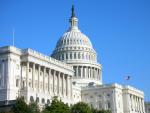10, 9, 8, 7 …… refers to a countdown. The larger question is count down to what?
To some who can be called “Armageddonists,” regardless of whether the White House and U.S. Congress avert or delay the “fiscal cliff,” the countdown regarding a financial apocalypse is still under way.
And, to a splinter group, going over the cliff may be the only way to bring fiscal sanity to a debt-crazed nation.
To others, this is a countdown to nowhere. The so-called fiscal cliff is merely a hyped-up version of the Y2K false alarm of 13 years ago. Nations, by and large, will muddle through as Winston Churchill famously observed. Hence, to “Muddlers,” Hobbesian pessimism isn’t justified even though a more perfect world remains elusive.
To a third category of thought, Armageddon isn’t inevitable. But neither is muddling through an option. The test is avoiding the Scylla posed by inaction and the Charybdis of overreaction with sufficient skill or luck to navigate around or smash through these formidable obstacles.
“Armageddonists” know that the world’s economies are at great risk. Internationally, nightmarish scenarios abound from an attack against Iran to curtail its nuclear ambitions to further uprisings and revolutions in the Arab and Muslim worlds with the prospect of radical Islamic regimes seizing power. And conflict in South Asia could too easily escalate while ongoing disputes in Asia over territorial claims and economic competition could turn nastier.
“Muddlers” know that economists have predicted hundreds of the handful of recent real recessions. Political scientists have had similar track records prophesying new crises, conflicts or wars. The world remains a complex and often dangerous place. Yet, exaggerations and outright distortions about the certainty of further chaos are indeed just that.
“Muddlers” and “Armeggedonists” clearly represent different prisms of reality. Two hundred and thirty-five years ago, when informed by a student that a British army had been bested at Saratoga by the rebelling American colonists with the conclusion “We are ruined,” the famous Scottish academic Adam Smith retorted, “There is a lot of ruin in a nation.” On the other hand, wars in Iraq and Afghanistan have been fools’ errands and events in Egypt, Syria and Yemen could have tragic consequences for the West if extremism prevails.
Yet, the most obvious of destructive factors is the one about which little will be done. Ironically, this deus ex machina empowers the case for both “Muddlers” and “Armageddonists.” The greatest danger today isn’t religious extremism, economic meltdown, global warming or other litanies of potential threats.
The greatest problem facing most of mankind is bad or absent governance. If we are lucky, lack of governance will facilitate muddling through. If we aren’t, systemic breakdown, violence and chaos could ensue.
Under most circumstances, politicians prefer optimism until a real crisis strikes then adrenalin kicks in and gross exaggeration or outright untruths can take hold, from fiscal cliffs to much worse. Recent U.S. administrations have invoked the frightening specter of a “mushroom cloud” to create public fear of a variety of adversaries including Iraq, Iran and North Korea. Sometimes, scaring the public is more expedient than facing up to reality.
With an electoral victory providing strong helping winds, U.S. President Barack Obama could (and could is the operative word) safely navigate these treacherous waters.
First, in all likelihood, the fiscal cliff will prove less precipitous than “Armageddonists” predict. One solution for the economy ills is through creating an infrastructure bank using private capital guaranteed by the U.S. government and paid for by user fees as this column repeatedly has proposed.
Internationally, however seemingly intractable, resolution of two endemic conflicts will have profoundly positive consequences. The Arab-Israeli-Palestinian and Indo-Pakistani standoffs are threats to world stability. It is in the greater global good that both conflicts be addressed as first orders of business.
Regarding the Middle East, the United States has consistently coddled the Israelis and the Saudis. While having to guarantee the existence of Israel and the protection of Saudi Arabia should Iran develop nuclear weapons, the United States has the credibility and the influence to induce both Riyadh and Tel Aviv to come to terms. Similarly in South Asia, given that Pakistani President Asif Ali Zardari and Indian Prime Minister Manmohan Singh have good personal relations, the United States, possibly in conjunction with others, must broker a peace agreement.
None of these initiatives will occur over night although sometimes pleasant surprises do happen.
Meanwhile, the countdown continues. Without the courage to act, the “Muddlers” are less likely to be right this time. Inaction and the failure to govern greatly strengthen the “Armageddonists'” pessimism. We cannot allow the countdown to reach 2 or 1, let alone zero. The consequences could be too horrific.
Meanwhile, happy New Year to all!
Harlan Ullman is senior advisor at the Atlantic Council, and chairman of the Killowen Group that advises leaders of government and business. This article was syndicated by UPI.
Image: Capitol.thumbnail.jpg
